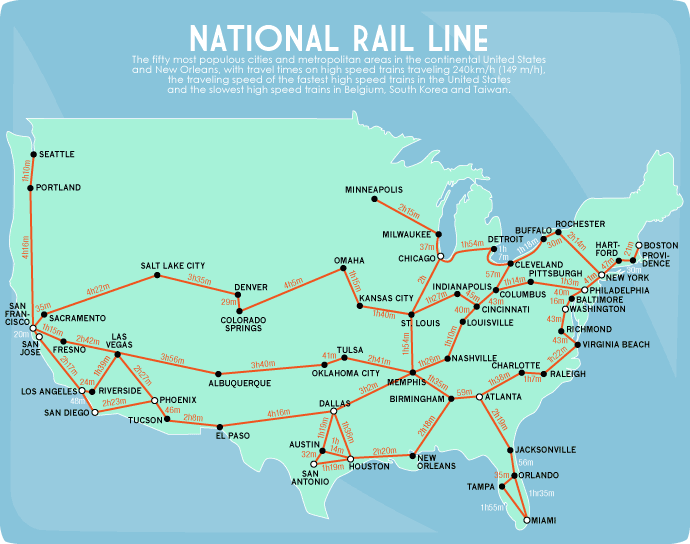WASHINGTON, D.C. ? Today, Sens. John Kerry (D-Mass.) and Arlen Specter (R-Pa.) introduced a bill to create new jobs by updating the nation?s crumbling infrastructure. The High-Speed Rail for America Act of 2008 would transform America?s outdated and underfunded passenger rail system into a world class system
This would help finance the California proposed corridor and make needed improvements to the Northeast corridor. The legislation provides $5.4 billion over a six-year period for rail infrastructure bonds. The Federal Rail Administration has already designated ten rail corridors that these bonds could help fund, including connecting the cities of the Midwest through Chicago, connecting the cities of the Northwest, connecting the major cities within Texas and Florida, and connecting all the cities up and down the East Coast.
Source: http://latimesblogs.latimes.com/bottleneck/2008/11/kerry-and-spect.html



